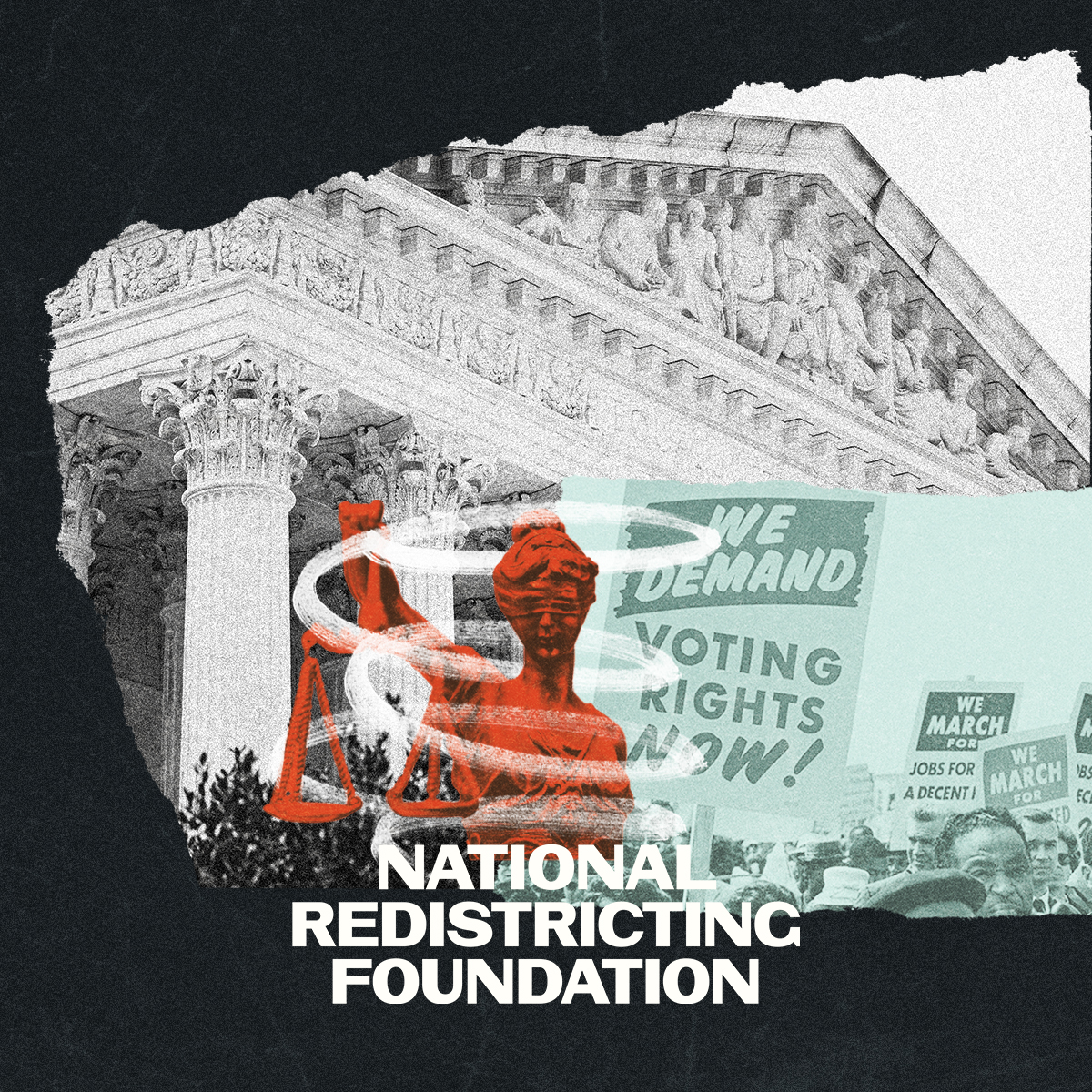ICYMI: NRF Reflects on 1st Anniversary of Allen v. Milligan
For Immediate Release
June 10, 2024
Contact
Tomas Graglia
graglia@redistrictingfoundation.org
Washington, D.C. — On Saturday, Attorney General Eric Holder issued a statement reflecting on the first anniversary of the Supreme Court’s landmark decision in Allen v. Milligan, which reinforced Section 2 of the Voting Rights Act (VRA). As a result of the decision, Alabama, Louisiana, and Georgia have more representative maps with additional Black opportunity congressional districts going into the 2024 election.
Leading up to the anniversary, the National Redistricting Foundation (NRF), the 501(c)(3) affiliate of the National Democratic Redistricting Committee (NDRC), announced it would launch a series of virtual voter education events in these states, starting with Alabama, to educate voters about new Black opportunity districts that were created following Allen v. Milligan. The NRF was central to the success of this case. It initiated the lawsuit from the beginning in support of the Caster plaintiffs. The Caster case was consolidated with a similar case brought by another group of plaintiffs, the Milligan plaintiffs, and the NRF continued to direct the legal strategy and financially support the Caster plaintiff group as the case went before the U.S. Supreme Court.
In case you missed it, here is a sample of our coverage on the anniversary of Allen v. Milligan:
AL.com: Supreme Court ruling 1 year ago today changed Alabama’s congressional map
Excerpts:
“This incredible progress is worthy of celebration—all the more so because it did not come easily,” former U.S. Attorney General Eric Holder said in a statement.
…
Holder compared the fight by state leaders against the ruling and new maps to battles decades earlier in the Civil Rights era.
“From defying federal court orders to attempting to use litigation as a vehicle to roll back voting protections for citizens, the resistance to the enforcement of Allen v. Milligan over the past year mirrored the sordid history of the Jim Crow era,” Holder said. “That continued, concerted effort to achieve unearned, illegitimate power at the expense of communities of color demonstrates that our country remains too far from the Promised Land envisioned by those who sacrificed their lives for civil and voting rights.”
ABC 33/40: Former U.S. attorney general reflects on Alabama redistricting ruling a year later
Excerpts:
“Allen v. Milligan has brought more representative electoral maps to states once thought to be unreachable in the fight for equal representation, including Alabama, Georgia, and Louisiana. This incredible progress is worthy of celebration—all the more so because it did not come easily,” said Eric H. Holder, Jr., the 82nd Attorney General of the United States. “From defying federal court orders to attempting to use litigation as a vehicle to roll back voting protections for citizens, the resistance to the enforcement of Allen v. Milligan over the past year mirrored the sordid history of the Jim Crow era. That continued, concerted effort to achieve unearned, illegitimate power at the expense of communities of color demonstrates that our country remains too far from the Promised Land envisioned by those who sacrificed their lives for civil and voting rights.”
“As we reflect on this landmark decision, we must not only recognize progress, but we must also resolve to do more in the struggle for justice and equality. True equity can only be achieved when the bedrock of our democracy is secure and the fundamental rights of all American citizens are protected and upheld—not through delusory notions of a self-identified race-blindness. In order to make that vision a reality, we must preserve the legal projections for every citizen’s right to vote and that starts with renewing efforts to reinstate and reinvigorate the Voting Rights Act of 1965—in its entirety,” Holder concluded.
Excerpts:
Former U.S. Attorney General Eric H. Holder Jr. is reflecting on progress made for Black voters on the first anniversary of the U.S. Supreme Court’s landmark decision reinforcing the Voting Rights Act.
…
In a statement, Holder said, “This incredible progress is worthy of celebration—all the more so because it did not come easily. From defying federal court orders to attempting to use litigation as a vehicle to roll back voting protections for citizens, the resistance to the enforcement of Allen v. Milligan over the past year mirrored the sordid history of the Jim Crow era. That continued, concerted effort to achieve unearned, illegitimate power at the expense of communities of color demonstrates that our country remains too far from the Promised Land envisioned by those who sacrificed their lives for civil and voting rights.”
Democracy Docket: Why the US Supreme Court’s Landmark Allen v. Milligan Ruling Still Matters Today
Excerpts:
Marina Jenkins, executive director of the National Democratic Redistricting Committee, told Democracy Docket via email, “there is no other law that provides the same level of protection for the voting rights of communities of color. Section 2 is the single most important tool for voters in states to defend against racial vote dilution.”
…
“The ongoing Louisiana litigation exemplifies the continued need to fight not only for the enforcement of Section 2, but for the value and constitutionality of the law itself,” Jenkins said. “The fact that the case was brought at all is a reminder that there are still anti-democratic forces determined to roll back progress.”
…
Both Li and Jenkins noted that lawmakers have attempted to bolster the federal Voting Rights Act through the “John R. Lewis Voting Rights Advancement Act,” but the legislation has never cleared Congress.
###
Ensure Every Voice Counts
The National Redistricting Foundation works to advance fair representation, so voters—not political interests—shape our democracy.
